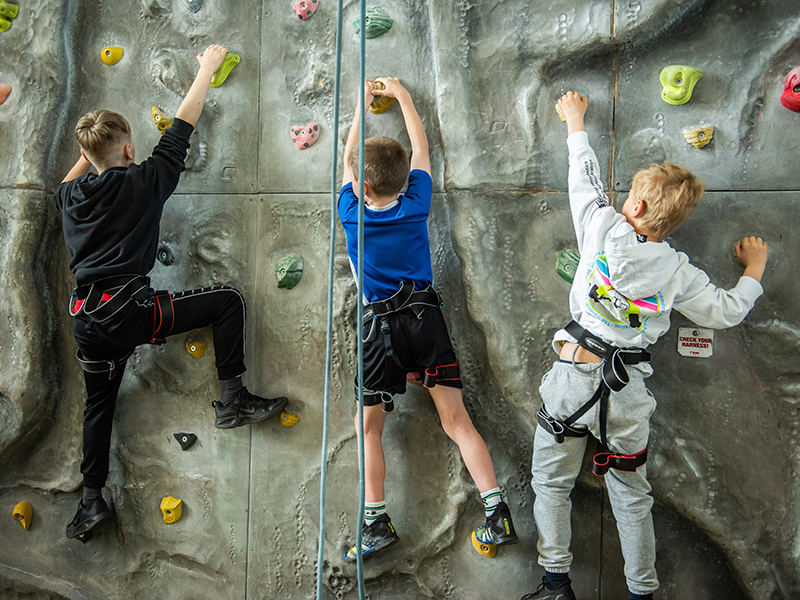The Programme: Big Norfolk Holiday Fun
Big Norfolk Holiday Fun is a government-funded three year programme aimed at children who are eligible for free school meals or considered otherwise vulnerable, aged 5-16. The programme is funded by the Department of Education under the Holiday Activities and Food (HAF) fund.
Research has shown that the school holidays can be pressure points for some families. For some children, this can lead to a holiday experience gap, with children from low-income families at risk of missing out. The Big Norfolk Holiday Fun scheme is designed to offer safe and fun activities to get children moving and active during this time.

2023-2024 Data Insights
We conduct surveys to gather valuable feedback from both participants and providers. Our primary focus is to cultivate an environment of continuous improvement, aiming to enhance and amplify the impact generated by our programme. Central to our mission is ensuring the active engagement of a diverse range of children and young people, as we strive towards our ultimate objective of creating a lasting and positive effect on their well-being.

0
Children attended activities (Excluding paid for places)

0
Children doing more physical activity

0
Children trying healthier food
Impact summary
The Big Norfolk Holiday Fun programme gained remarkable momentum, thanks to the cultivation of valuable partnerships. Throughout 2023, our focus revolved around the optimisation of capacity and the refinement of operational processes, resulting in increased efficiency.
Throughout our ongoing assessment of the programme, we bolstered provision and raised awareness of being physically active across the county. These developments will ensure long-term benefits that extend far beyond the programme’s completion in 2024.

- The implementation of a robust application and contract system will be carried out for all providers.
- The data collection process will be enhanced from booking to post-holiday reporting for each period.
- Web development of the Every Move Activity Finder will be undertaken to improve the experience for both providers and users.
- A dedicated HAF Coordinator/Ops Manager will be recruited to oversee and manage the programme’s operations.
- Clear role delineation and understanding will be ensured among the team, including Marketing and Communications, Finance, Provider Contact, and Partner Contact.
- Provider communications will be strengthened, and regular drop-in training and feedback sessions will be established to continuously improve provider engagement.
- The programme will strive to understand and meet provider’s further training needs.
- An Equality Impact Assessment (EQIA) and Risk Assessment (RA) will be completed for the programme, ensuring compliance and addressing potential risks.
- The process of conducting quality assurance visits to activities will be improved and formalised, ensuring adherence to standards and enhancing the overall quality of the programme.
- The programme will expand the types of activities offered, providing a greater variety to cater to diverse interests and preferences.
- Data will be regularly utilised and reviewed to identify priority localities, age groups, and other gaps in provision, enabling targeted improvements and resource allocation.
- The offering of hot food will be improved, providing enhanced options for nutritious meals during the programme.
- Provisions for cycling activities will be increased, promoting active and healthy lifestyles among participants.
Strategically, following the successful management of operations by the HAF Coordinator and the establishment of clear roles within the programme team, opportunities arose to strengthen collaboration and alignment with key partners and stakeholders, including Children Services, CYP Mental Health teams, the youth sector, and wider public health initiatives. Through these collaborative efforts, excellent partnerships and systems have been forged, facilitating:
- Over 50 providers becoming aware of and gaining access to the NCC Safer Partnerships Programme, ensuring a safer environment for program participants.
- More than 25 providers attaining Hygiene Level 2 certification, ensuring high standards of cleanliness and food safety.
- Establishing effective communication channels and networking with Family Voice, Short Breaks, and Momentum, enabling the identification and engagement of top-quality providers and effectively reaching out to target families.
- Securing additional funding through the Active Travel initiative to support cycling activities, promoting active lifestyles and providing enhanced opportunities for program participants.
The programme has successfully fostered collaboration among various departments and stakeholders, creating a unique and diverse network that enhances and informs the work of each other. This phase has been particularly intriguing as the evaluation of the programme against multiple indicators has raised thought-provoking questions about potential improvements in leisure, youth work, and physical activity county-wide. The aim is to develop new links and processes that will foster sustainable enhancements in these areas beyond the conclusion of funding in 2024.
Specifically, efforts will be made to ensure targeted secondary schools are well-informed about the scheme and can strategically utilise the funding to benefit their Free School Meal (FSM) children. This includes considerations regarding transition, career support, and alignment with their respective school development plans. Furthermore, relevant councils and charities will be engaged, ensuring their awareness of the scheme and encouraging effective utilisation of the funding by aligning their strategic outcomes with those of BNHF wherever possible.
In addition, the programme will carefully examine the gaps in youth services that have been highlighted through BNHF, with the intention of identifying areas for improvement or management beyond the funding period. This reflective approach aims to address and enhance the provision of youth services in a sustainable manner, even after the conclusion of financial support.

